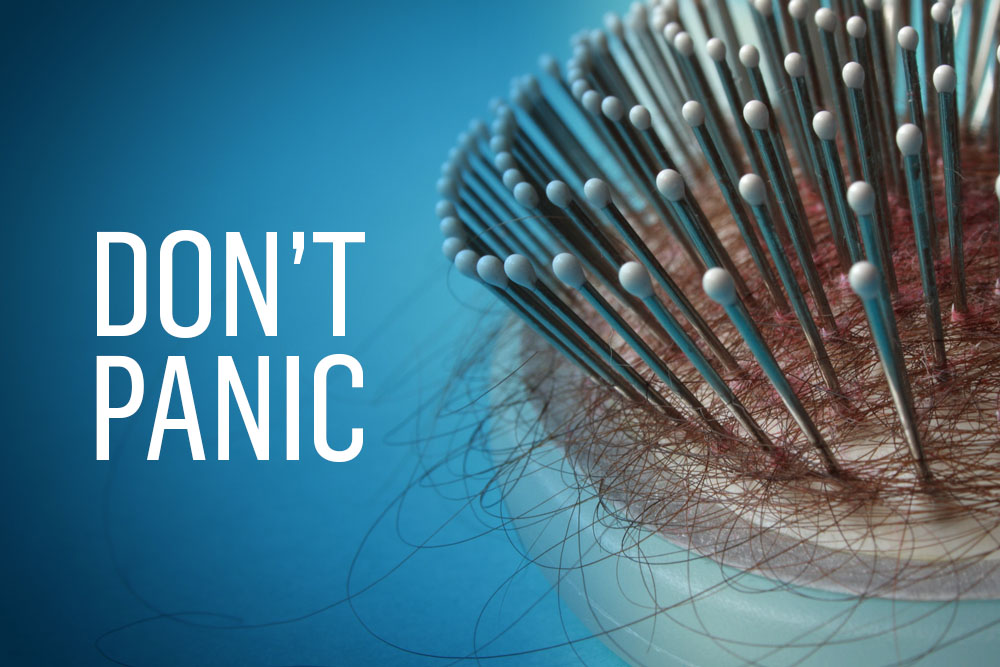Hair Loss After Bariatric Surgery – The Facts

Anyone who has had weight loss surgery will tell you that it is a journey. Not only is your body undergoing major changes, but bariatric patients are also faced with learning new healthy habits such as proper diet and exercise. At St. Louis Bariatrics we are dedicated to the success of our patients, and one of the best ways to succeed in achieving weight loss goals is learning how nutrition affects the body.
Much like being overweight, when you lose a lot of weight rapidly and have a restricted diet your body can undergo changes that, if not properly managed, can have adverse effects. One of the most important elements of this equation is the intake of adequate protein. Protein, especially lean protein, is essential for weight loss surgery patients as it helps aid muscle growth, recovery, and weight loss.
Of the essential amino acids your body needs to function at a healthy level only 13 are produced by your body; the other 9 have to come from your diet, and this is where protein supplements can be highly beneficial. If you aren’t able to get adequate protein through whole foods it will be critical to use supplements to assure that your body is receiving the protein it needs to recover.
Protein is not only essential for weight loss and muscle growth, but it can also be a key factor in avoiding other side effects of weight loss surgery especially post surgery hair loss otherwise known as Telogen Effluvium. Generally occurring one to six months after surgery, hair loss related to weight loss is not typically permanent, as it is a shedding of hair that is in the telogen or non-growth phase, which happens naturally. When your body is under increased stress, which happens after surgery, it can increase the number of hair follicles in the telogen phase, which means you may experience increased hair loss or shedding.

While it may sound terrifying to reach your weight loss goals only to lose your beautiful locks, unless you have a pre-existing condition that affects hair growth, your hair will grow back. There are also ways that you can help avoid hair loss, such as using key supplements that will help offset the stress that your body is undergoing.
If you are undergoing hair loss post weight loss surgery, or are looking to minimize the risk of potential hair loss, you can follow these simple steps to help avoid Telogen Effluvium:
- Manage your protein intake. It’s essential to maintain a healthy nutrition plan to avoid hair loss and maximize your weight loss success. This especially important when it comes to adequate protein – if you are not getting enough protein through whole foods then it will be important to supplement with protein powders.
- Attend follow up appointments and get your regular physical. Underlying medical issues such as thyroid disorder, vitamin deficiency, and other illness can impact hair loss. It is important to have a clear understanding of any issues that may contribute to hair loss.
- Utilize Supplements. If you have vitamin deficiencies work with your doctor to use supplements that may help you avoid hair loss such as: zinc, iron, B12, Omega 3 fatty acids, and Biotin.
- Don’t panic. This type of hair loss, while it can often be avoided, is natural and happens to many people that undergo stress. Even though it can be alarming the lost hair generally grows back within six months.
At St. Louis Bariatrics we work with all of our patients to find the right nutrition and supplement program and offer supplement packages through our practice. We are dedicated to helping you find success and health throughout your weight loss journey.






